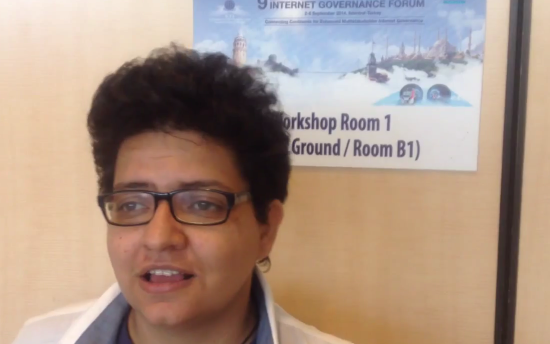By JAKE SORIANO
ISTANBUL, Turkey—Children have become the new targets of cybercriminal activities over the last five years, with the online underground economy making a killing from selling inappropriate images of children on the Internet, a security expert said here.
These pictures of children were found to sell for up to three-figure dollar amounts, said Myla Pilao, core technology director from the Internet security firm Trend Micro during one of the sessions of the 9th Internet Governance Forum. Trend Micro is headquartered in Tokyo, with its research and service centers based in the Philippines.
“In the underground community, it is a growing market,” Pilao said, adding that the market thrives because children have very easy access to mobile devices like smart phones. Inappropriate images of children now cost more than hiring a spam botnet, an online underground service used by malicious users to spew unsolicited e-mails.
The numbers are “scary” according to Pilao: about five billion online threats everyday, of which around 20 percent target kids. These threats come in the form of malicious mobile applications, unwanted online content and security risks on social media sites.
“It [only] takes five seconds to download an app,” Pilao said.
There are currently 2.4 million malicious mobile applications, which children are at risk of downloading easily.
Big government enterprises used to be the victims of cybercriminals, said Pilao, explaining that cyber-attacks in the past used to be skewed toward targets who have money or where information could be stolen.
In a Trend Micro survey of 2,000 respondents from Singapore, Malaysia, Indonesia, Thailand and the Philippines on mobile threats, only 24 percent of Filipino respondents were found to verify the authenticity of their applications.
But blocking malicious Internet content, while necessary in some cases, is not a complete solution to this global problem, according to activist Nadine Moawad of the Association for Progressive Communications (APC).
“Offline, we teach children to have some form of agency,” Moawad said in a separate interview, explaining that children are taught how to deal with other people socially by themselves. “We teach them to scream, we teach them stranger danger. [But] online, we block things from them.”
This solution will not fully solve the problem because children “will circumvent it [and] they will still do things behind our backs,” she added.
“Predators of sexual violence feed on secrecy. That’s what keeps them safe,” Moawad said.
What is needed instead are “creative solutions,” those that empower children and grant them the means to combat exploitation online.
“The way to do it is to engage children and parents in the conversation, so that children also have a say,” Moawad explained.
(Jake Soriano is covering the IGF in Istanbul, Turkey on a grant from the Southeast Asian Press Alliance.)
